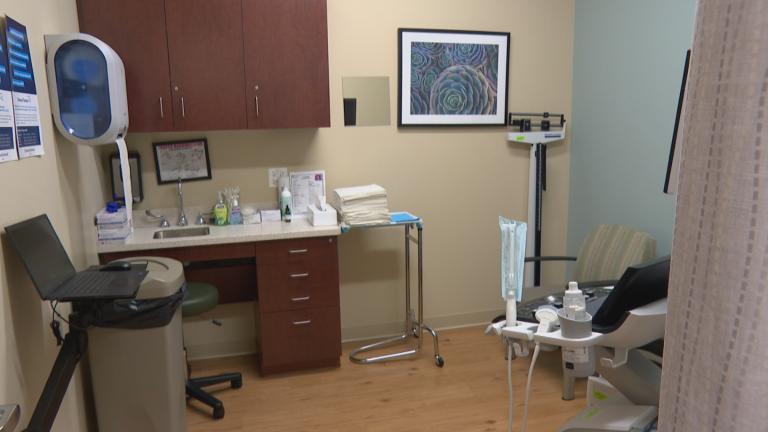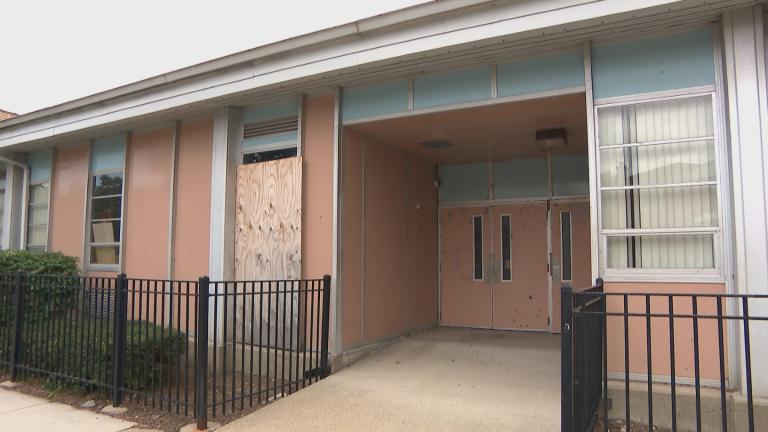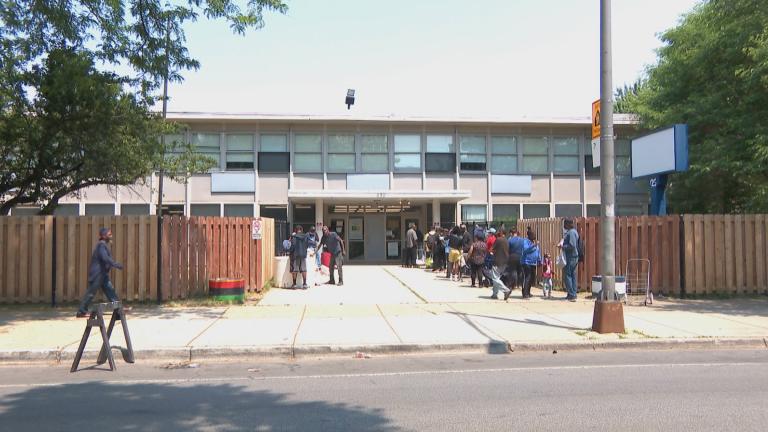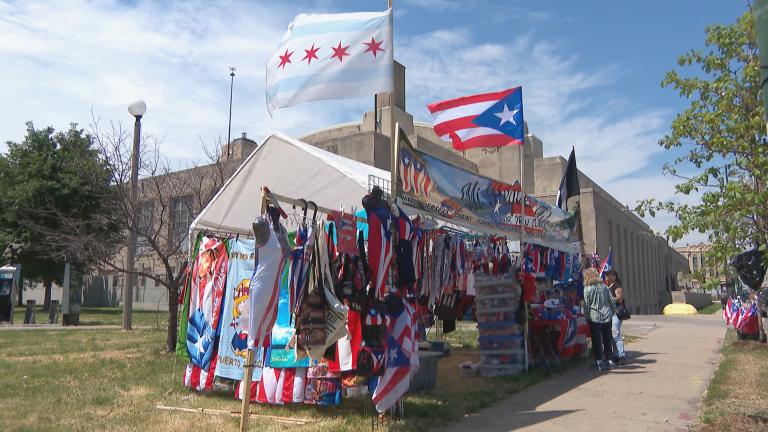Chicago police have no updates on Monday’s mass shooting in East Garfield Park that left 14 people shot, including three children.
Ald. Jason Ervin (28th Ward), who lives in Garfield Park, said he has been told investigators have leads. He asks anyone with information to come forward; a $15,000 reward is being offered.
Interactive map: More from our community reporting series
According to a Chicago Sun-Times analysis, East Garfield Park had 14 homicides and 80 nonfatal shootings through Oct. 28. That doesn’t include Halloween’s mass shooting.
It’s believed to be the largest instance of gun violence in Chicago this year.
Fourteen people, ten of whom from the same family, were shot at the intersection of Polk and California. The victims had been holding a vigil for a relative who’d recently passed away when a car drove by and opened fire.
Video: Watch our full interview with Ald. Jason Ervin.
Damien Morris, senior director of the Violence Prevention Initiative at Breakthrough Urban Ministries, said there used to be a code of conduct that women and children were off-limits.
“And so now we’re hearing about more children being involved and becoming victims of gun violence, and women as well,” Morris said. “Monday’s incident, we had about eight women that were shot out of the 13. So when you hear news like that, now people are questioning like, there's no code of conduct anymore – anybody can be a victim and so that increases the fear.”
Breakthrough was on hand Monday, as it often is when violence erupts. The group aims to have victim advocates on scene within a half hour of a shooting.
“The more resources that you come into the incident with, the better it is for you to calm down the situation, put some of the victims’ minds at ease as well. Because right now they’re in crisis, they’re panicking right, they’re thinking about surviving,” Morris said.
As head of Metropolitan Family Services’ Peace Initiative, Dominique McCord partners with Breakthrough. She said their therapists work to be part of the community and to help residents tear down any negative stigma associated with therapy.
She said for residents the trauma is compounded.
“When we think about things that are happening in East Garfield Park, our families don’t often have time to heal before the next incident occurs,” she said. “We all can see when we look around us, we don’t have green space, we’re in a food desert, there’s so many things – not just violence – the impact the day to day life of individuals who are in East Garfield Park.”
Many area residents bring up the dearth of activity, businesses and opportunities in East Garfield Park.
Cornelius Parks, pastor at Good Hope Free Will Baptist Church, blocks down from Monday’s shooting, believes more needs to be done to beautify the area.
“This California Street, it needs a makeover,” Parks said. “Just last night, let’s be honest, when we did the first press conference, it was dirty in the parking lot. Just because the mayor was coming last night, they made sure they provided trucks, they made sure they provided workers out there to clean it up for the mayor. Why can’t we clean it up for the community? Why can’t we clean it up for the people? Why do we have to wait until dignitaries come around to make it look good? Let’s make it look good for the people that live in this community.”
Mayor Lori Lightfoot was among those who last night took part in a vigil for the victims.
Parks said he’s grateful that nobody was killed. Still, he said area families are now scared and were frightened before, too.
A 2021 state law is designed to target funding and attention to the Illinois communities that have the most violence – including Garfield Park. State officials say $65 million has been spent on trauma informed care.
State Rep. Lakesia Collins, whose district includes East Garfield Park, said that’s barely noticeable because mostly Black communities like this one have oppressed for so long.
“When you think about the lack of school funding, the lack of economic development, the blind eye to the violence that we’re seeing in our community that’s rooted in poverty – any type of funding whether it’s $65 million or more – you can barely see it. And yes, our kids, they don’t have hope. Their parents are frightened. I know I’m frightened,” Collins said.
State Rep. Camille Lilly said it’s up to the city, state and federal government to establish resources for victims’ families, to help them heal.
Her brother was killed in Oak Park.
“It is so alarming that not only did my brother get killed by a person, but I had to pay for his medical costs,” Lilly said. “So that burden stays on the family. We have to see the whole picture of what these incidents do to families and individuals. And the healing – my family is still struggling through that healing with no help from nobody.”
Lilly said she believes officials want to help, but they don’t know what to do.
She said the status quo can’t stand, and that locals have visions to transform the vacant lots into something more. One woman’s hoping to establish a barber shop, for example.
She also said that helps residents feel better about their community.
Advocates said East Garfield Park has a lot going for it: close access to downtown, public transportation, the fieldhouse and the Garfield Park Conservatory – a world-renowned botanic garden.
Marillac St. Vincent Family Services has also been a pillar in the community for over 100 years, bringing hope to many through its early childhood, youth and senior programming. They even host a food pantry.
Director of Youth Services Albert Richardson has been at the center since 1996 taking on different roles. He and his team aim to create a safe place for people of all ages, to learn and build skills, amid increased violence in the community.
“With everything going on in our world, a lot of our kids are being forced to grow up too fast … When you come in here, you’re reminded you’re still a kid. You can act like a kid, you can play like a kid,” Richardson said. “Through play, you’re still learning … but you have play, arts and crafts, games. More importantly, you’re building that repertoire with your teacher. That’s someone you can trust and go to when you’re having a bad day.”
“Chicago Tonight” is expanding its community reporting. We’re hitting the streets to speak with your neighbors, local businesses, agencies and leaders about COVID-19, the economy, racial justice, education and more. See where we’ve been and what we’ve learned by using the map below. Or select a community using the drop-down menu. Points in red represent our series COVID-19 Across Chicago; blue marks our series “Chicago Tonight” in Your Neighborhood.Community Reporting Series








